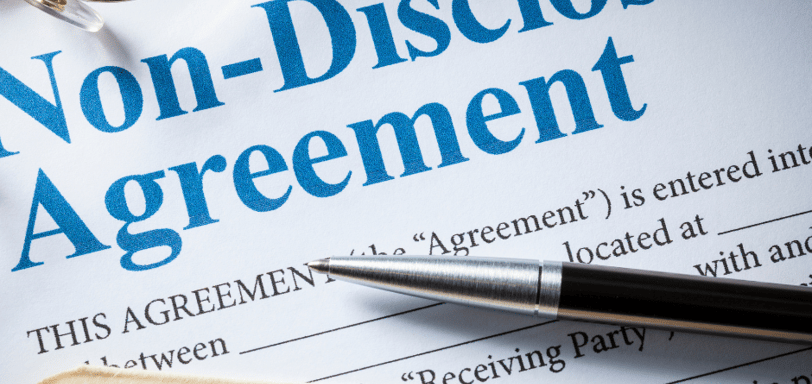The power and limits of Non-Disclosure Agreements in business


In today’s business environment, protecting sensitive information is critical. Whether negotiating a deal, onboarding a key employee, or collaborating with third parties, companies must ensure that their confidential information remains secure.
Non-disclosure agreements ("NDAs") serve as a vital legal tool in this regard, creating enforceable obligations that prevent unauthorised disclosure. While NDAs provide businesses with a necessary layer of protection, they are not without their limitations.
How NDAs work and when to use them
At its core, an NDA establishes a confidential relationship between parties, ensuring that shared proprietary or sensitive information is not misused. These agreements are particularly useful in scenarios where businesses need to disclose financial data, strategic plans, intellectual property, or trade secrets to employees, investors, or external stakeholders.
In employment settings, NDAs are often included in contracts to prevent key personnel from leaking business strategies to competitors. In mergers and acquisitions, they provide assurance that critical financial details remain confidential during negotiations. Similarly, companies engaging consultants, suppliers, or independent contractors rely on NDAs to maintain control over their valuable business insights.
What NDAs cover
For an NDA to be effective, it must clearly define what constitutes confidential information. Businesses must be specific about the nature of the data being protected to avoid ambiguity and to ensure enforceability. Typically, NDAs cover business plans, financial projections, customer databases, proprietary formulas, and product development details. However, information that is already publicly available cannot be protected under an NDA, nor can an agreement be used to retroactively impose confidentiality restrictions.
The benefits of NDAs
A well-structured NDA offers multiple benefits. It provides a legal avenue for recourse should confidential information be unlawfully shared, allowing businesses to claim damages or seek an injunction to prevent further disclosure. It also provides a level of reassurance to parties entering into negotiations, and it further facilitates the open exchange of information while reducing the risk of misappropriation.
In competitive industries, where intellectual property and trade secrets drive success, NDAs play a pivotal role in preserving a company’s competitive edge.
Limitations and legal boundaries of NDAs
Despite their value, NDAs are not all-encompassing and must be applied within legal and ethical boundaries. They cannot be used to conceal unlawful activities or to prevent whistleblowing, as courts will not uphold agreements designed to suppress evidence of fraud, corruption, or workplace misconduct. Moreover, NDAs should be reasonable in scope and duration, since overly broad restrictions that indefinitely bind an individual from using their knowledge or skills may be deemed unenforceable.
Additionally, if an NDA attempts to prevent disclosures required by law, such as in legal proceedings, it will not hold up in court.
Strategic considerations for businesses
Businesses must be strategic when implementing NDAs, ensuring that these agreements serve their intended purpose without overstepping legal limitations. A well-drafted NDA should balance the protection of confidential information with fairness, creating a legally sound agreement that holds up in practice.
For businesses navigating high-stakes negotiations, intellectual property concerns, or sensitive commercial dealings, NDAs remain a crucial protective measure. However, understanding both their power and their limits is key to ensuring they are used effectively and ethically.
For tailored guidance on drafting and enforcing NDAs in a way that aligns with your business objectives, contact our legal team today.
Would you like expert insights delivered to your inbox?
Subscribe to our newsletter for the latest legal updates, industry insights and free legal resources.
© 2024 Ackermann Attorneys, All rights reserved.
_________________________________________________________________________________________________________________________________________________________________________________________________________________________________________________________________________________________________________________________________________________________
Ackermann Attorneys
Follow us
